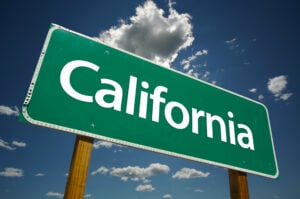California Bar’s Handling Of Real Estate Draws Scrutiny
Officials in Sacramento say the agency hasn’t maximized revenue from its San Francisco property.

(Image via Getty)
The State Bar of California’s management of its real estate has drawn criticism in recent months from the state auditor and state Legislature.
The auditor accused the bar of failing to maximize revenue from the leasing of floors it does not use in its headquarters located in San Francisco’s financial district.

How Savvy Lawyers Build Their Law Firm Rate Sheet
In particular, Auditor Elaine M. Howle said the bar is leasing spaces at below-market rates and has let some space at the property go unleased for long periods of time.
The auditor’s office wrote that its appraiser’s “comprehensive analysis” determined that retail space similar to the State Bar’s should lease for $54 to $60 a square foot and office space for $68 to $76 a square foot.
“In 2018 and 2019, [the] State Bar entered into four leases for its San Francisco building with below-market rates that range from $12 to $28 per square foot less than those of comparable properties,” the audit said. “Even if [the] State Bar had leased its space at the lowest of the appraiser’s market rates, it would have earned $777,000 in additional revenue in just the first year of the four leases.”
The bar commissioned its own recent analysis that confirmed its San Francisco lease rates are below market, according to the audit.
Sponsored

Not All Legal AI Is Created Equal


All Aboard! How To Get Intake Right In A Law Firm

How Savvy Lawyers Build Their Law Firm Rate Sheet

All Aboard! How To Get Intake Right In A Law Firm
The auditor also criticized the bar for not leasing one entire floor in the 13-floor office tower. The third floor, which needs to have a heating and cooling system installed, has not been leased since at least 2016.
The space could generate $1.1 million in annual revenue under the market rates estimated by the auditor’s appraiser.
Earlier this year, the bar began negotiating with an existing tenant that is seeking to expand to another floor and is willing to pay for the heating and cooling upgrades in exchange for rent concessions.
A bar spokeswoman said this week that the agency is still in lease negotiations with the tenant.
The auditor also said the bar has not maximized leasable space in either its San Francisco or Los Angeles buildings because it uses more square footage than current standards for office space suggest that it needs.
Sponsored

How To Build And Manage Your Law Firm Rate Sheet

Trust The Process: How To Build And Manage Workflows In Law Firms
In addition, the auditor raised a concern that the bar giving its property management firm 4,000 square feet of office space in the bar’s San Francisco building at no cost was atypical.
“Our appraiser questioned this term, especially given that the property management firm has offices nearby,” the audit said. “At market rates, the space the property management firm occupies has an annual lease value of $260,000.”
The bar is currently going through request for proposal processes for property management/construction management and leasing services.
The vendors’ proposals are currently being reviewed and proposed contracts will be on the agenda for the bar board meeting in late September, according to a bar spokeswoman.
Meanwhile, the Assembly Judiciary Committee also recently took aim at the bar’s management of its real estate, a topic the Assembly panel has scrutinized previously.
The committee’s analysis of the bar’s annual funding bill for 2020 said: “The bar’s failures to properly manage its real estate holdings raises many questions.”
The questions listed were:
- Should the bar own its own buildings, especially if it cannot manage them effectively?
- Given that the bar’s paramount duty is public protection, is it appropriate for the bar and its board to spend significant portions of their time, as it has at recent board meetings, focused on real estate management and not on public protection?
- If the bar is to continue to own its own real estate, might it be more appropriate to transfer responsibility for building management to the Department of General Services, which manages other state-owned buildings?
The Assembly recently amended the bar’s annual bill to express the Legislature’s intent that “the State Bar’s licensing fees in future years be reduced by the increase in income generated by increasing all real estate leases of State Bar property to market rate as soon as the existing below market rate leases expire.”
The legislation, SB 176, would bump the overall bar fee for active lawyers to $544, a 27 percent increase from the $430 in place now.
 Lyle Moran is a freelance writer in San Diego who handles both journalism and content writing projects. He previously reported for the Los Angeles Daily Journal, San Diego Daily Transcript, Associated Press, and Lowell Sun. He can be reached at lmoransun@gmail.com and found on Twitter @lylemoran.
Lyle Moran is a freelance writer in San Diego who handles both journalism and content writing projects. He previously reported for the Los Angeles Daily Journal, San Diego Daily Transcript, Associated Press, and Lowell Sun. He can be reached at lmoransun@gmail.com and found on Twitter @lylemoran.







